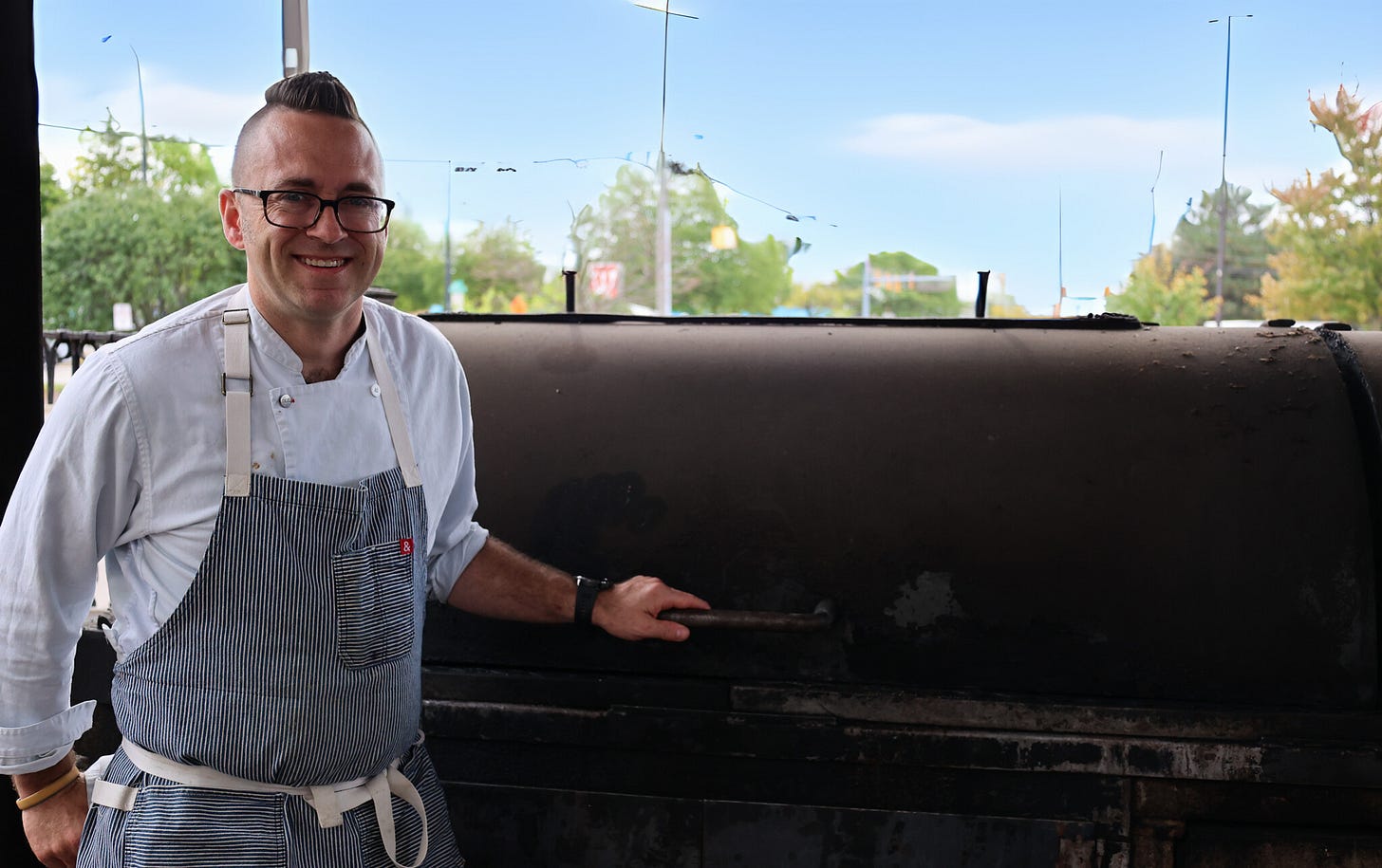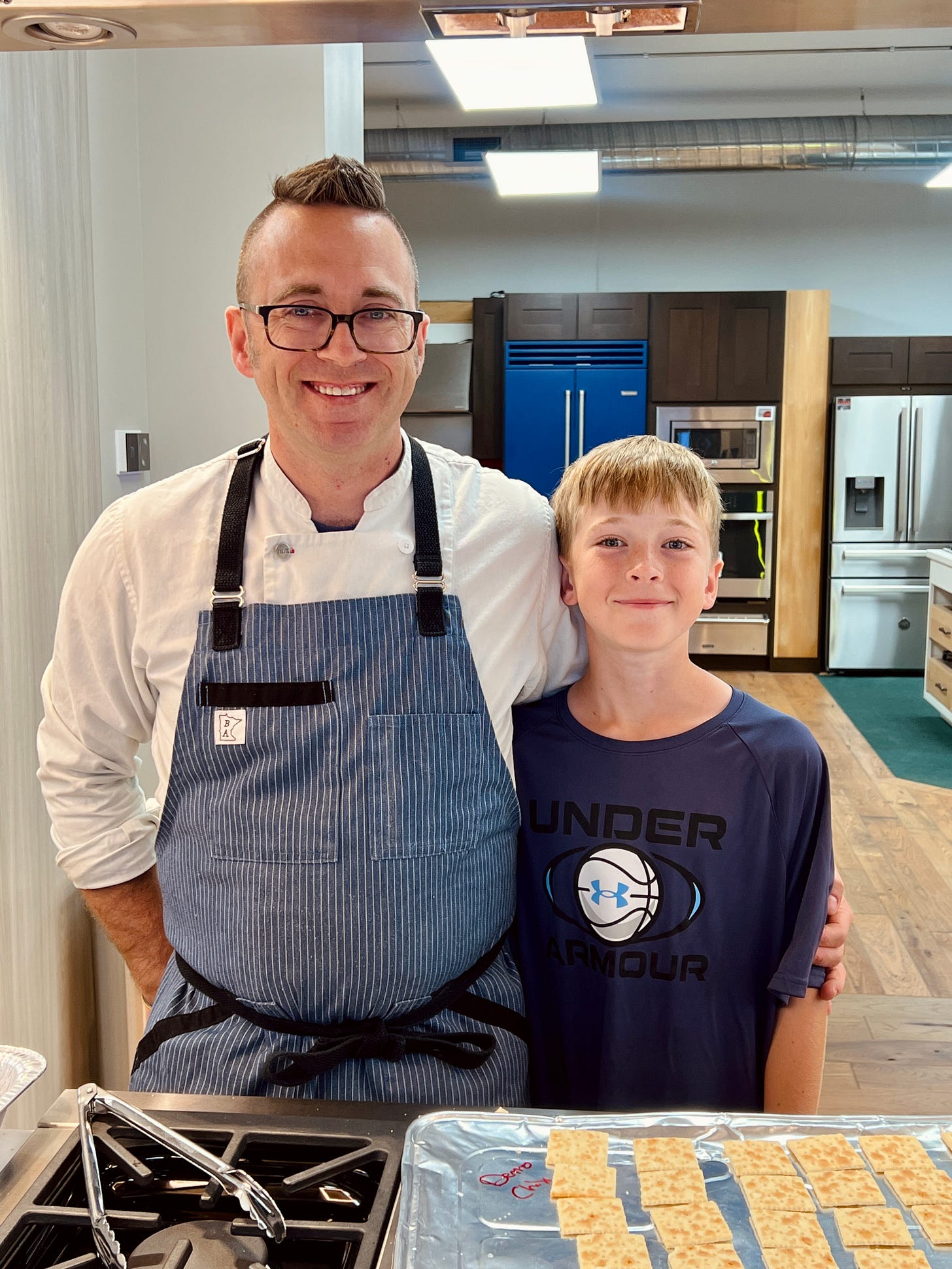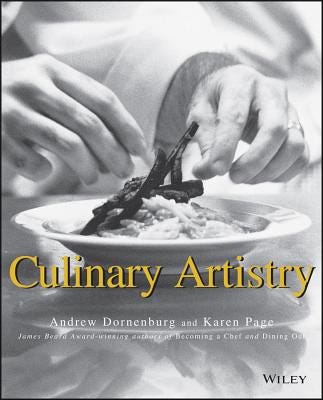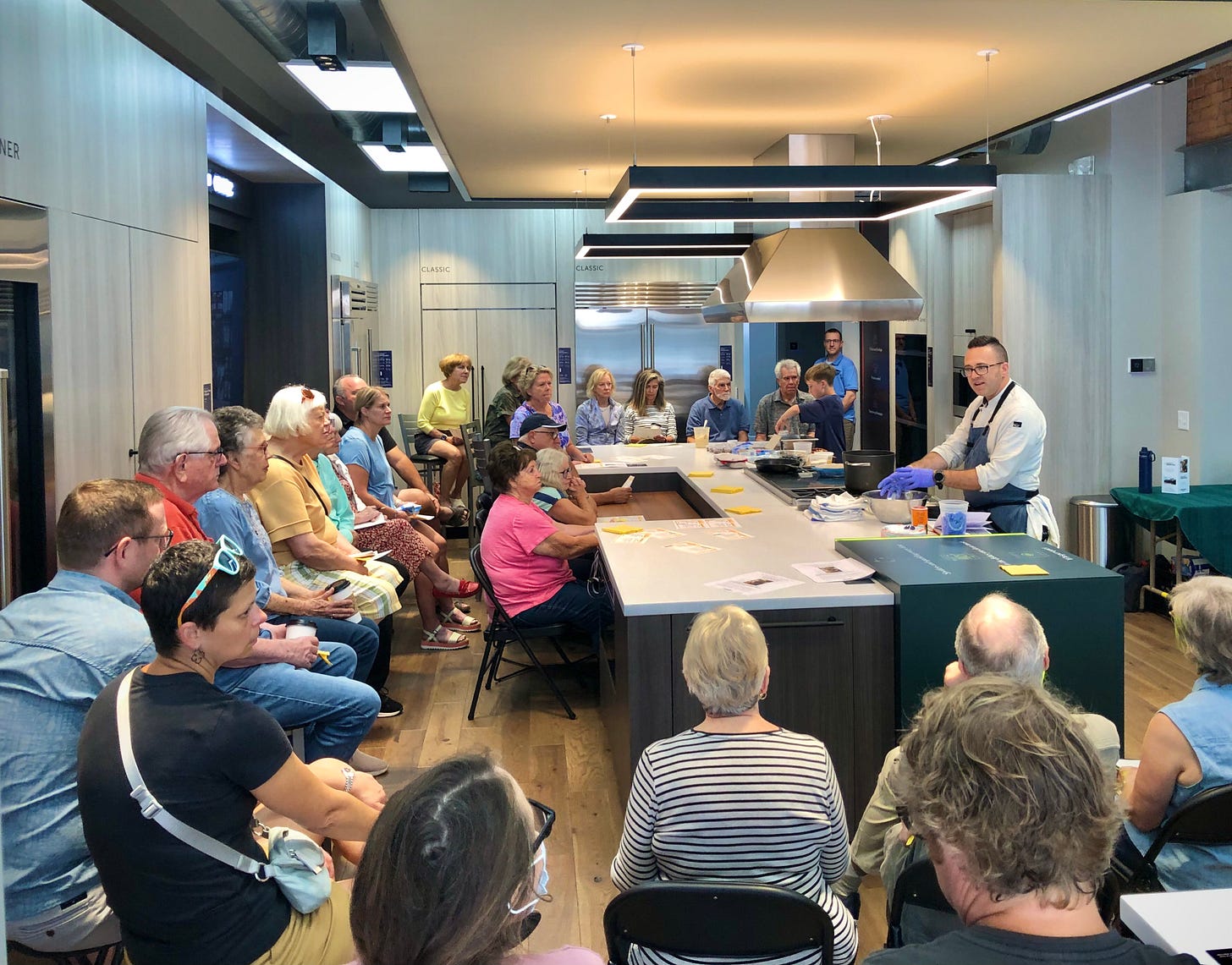Order Up! A Conversation with Bob Bennett, head chef at Zingerman's Roadhouse
One Potato talks to Bob about the definition of "Traditional American Food" and cherishing time cooking with his kids on his days off.
Welcome to Order Up! Our One Potato Interview Series, sharing tips for easy ways to expose your kids to new foods & cultures. We’re bringing you a special interview with Chef Bob Bennett & unique holiday gifts from Zingerman’s Mail Order - we’re so excited to tell you more!
One Potato is a reader-supported newsletter - paid subscribers have access to the full archive of Recipes and Specials Interviews and Community Voices. Through Dec. 15th we’re having a sale! Paid Subscriptions are only $30 for the upcoming year - that’s only $2.50 per month! Thank you for your support.
Welcome to today’s installment of One Potato’s Order Up! Interview Series. Meet Chef Bob Bennett, the culinary visionary behind Michigan’s iconic Zingerman’s Roadhouse, a celebrated part of the Zingerman’s Community of Businesses. Growing up in Michigan during the fast-paced ‘80s and ‘90s, Bob’s childhood meals were often quick fixes from a box. But those early experiences, combined with memories of his grandmother’s garden and family gatherings, planted the seeds for his lifelong passion for food as a way to connect people. As a chef who is a parent, and a parent who is a chef, he had tons of insight to share with us at One Potato.
Since 2003, Bob has been cooking at the Roadhouse, and at the helm for the last 7 years, which recently celebrated its 21st anniversary. Known for its focus on traditional American foodways, the restaurant has earned a cult following for dishes like their award-winning mac and cheese and house-made BBQ. Zingerman’s, which began in 1982 with its now-legendary deli in Ann Arbor, MI, has grown into a Midwest food empire with ventures like the Bakehouse, Candy Manufactory, and the Roadhouse—all celebrated for their dedication to artisan ingredients and authentic flavors.
At One Potato, one of the BEST and most unique gifts we ever received was a 3-month “Artisan Cheese Club” Subscription from Zingerman’s. We KNOW you’ll find something special to feed your friends and family this Holiday Season.
Click here to check out Zingerman's most popular mail order gifts, featuring food gift box winners like their perennial best-selling Weekender Gift Box, their legendary Sour Cream Coffee Cake, deli gift boxes like the much loved Reuben sandwich kits, and the carnivore's favorite Bacon of the Month club. Each gift is built by hand at their warehouse in Ann Arbor, Michigan, and available to ship nationwide.
Whether he’s serving mac and cheese at Zingerman’s or teaching his kids to make lasagna on a Sunday, Bob’s approach to food is all about joy, connection, and flavor. We talked about how Southern cuisine, local ingredients, and his family inspire his cooking, and why food remains at the heart of the connections he creates both at Zingerman’s and in his own kitchen with his kids.
For us at One Potato, we always ask the questions: how to get kids involved in cooking and excited about eating, and if our professional cooks have any specific tips and tricks for our readers who are home cooks. We loved getting this taste of the Midwest with Bob.
Introduce Yourself: My name is Bob Bennett, and I’m the head chef at Zingerman’s Roadhouse. I have two awesome kids, Lucas (12) and Brie (4).
At One Potato, we talk a lot about how food and cooking are ways in which traditions and culture are passed down through generations. You have studied traditional American food/recipes extensively, and won awards for quintessentially American dishes such as mac & cheese. How would you define “Traditional American Food” since this is such a vast country, with a melting pot of influences?
When we first started out 21 years ago, we thought we had a solid idea of what “American food” meant—largely rooted in Southern foodways. Dishes like grits and greens, fried chicken, whole-hog barbecue, and mac and cheese felt like the heart of it. These foods are staples of comfort, dishes many people grew up with.
But as you explore the country, you see American food evolving. It reflects the diversity of the people living here now, and that's what makes it so dynamic. At the core, though, Southern food remains a huge influence.
Another key aspect is locality. Regional ingredients—like blueberries in Michigan, rice in South Carolina, or even the produce at farmers markets—play a massive role. When I was a kid, farmers markets were rare, maybe twice a month. Now, they're everywhere, every day, in most cities. Local, seasonal eating has really shaped American food.
I personally love how the seasons dictate what’s on the menu. In the Midwest, for instance, we don’t have the same produce year-round. Instead, we treasure the short, vibrant moments of tomato season or corn season. It keeps things exciting and special.
You’re the head chef at an award-winning restaurant in the Midwest - so that begs a follow-up question. Why does Southern food feel like the foundation of American cuisine?
The South played a pivotal role in spreading food traditions across the country, largely through migration. During the Great Migration, for example, people moved from the South to places like Chicago, New York, and Detroit, carrying their recipes and foodways with them.
Southern cuisine is also a mix of influences—African, European, and Native American—all blending together. Whether it’s barbecue, sausage-making, or stews, these traditions grew and evolved with the people who shared them.
And it’s not just the South. Similar stories exist in places like New York, where Italian families passed down recipes, or in regions with strong German culinary traditions. But the South's unique history and cultural contributions make it a cornerstone of American food. It’s rich, varied, and deeply tied to the story of this country.
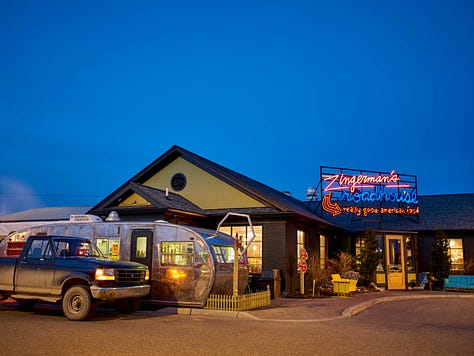


That's a great transition to ask: How has your Michigan upbringing and family background influenced your cooking at Zingerman’s and at home with your own family?
It’s funny because I cook almost every day now, but growing up, food wasn’t really the focus—it was more about family. In the ‘80s and ‘90s, a lot of our meals came from boxes or the freezer. I remember hot dogs, mac and cheese, and quick dinners like Hamburger Helper because my dad worked two or three jobs. We were always racing between school, sports, and activities, so fast food and microwave meals were part of life.
That said, we did have some exposure to “real” food. My mom took me and my brother to restaurants like Real Seafood Company in Ann Arbor, and my grandma on my dad’s side had a garden. I remember picking green beans with her and watching her can vegetables. Those little moments stuck with me.
A lot of my cooking skills came later, through work, self-teaching, and devouring cookbooks. I also learned from meeting and cooking with amazing people along the way. My upbringing wasn’t steeped in scratch-made meals, but it gave me an appreciation for family gatherings and the energy that food brings to those moments.
Since you’re mostly self-taught in the kitchen, and cookbooks played such an important role, what’s one cookbook you always return to?
One that stands out is Culinary Artistry. I discovered it when I was at Eastern Michigan University, just two semesters away from finishing a psychology degree I knew I wouldn’t use. I was spending more time in the library flipping through cookbooks than actually studying!
Culinary Artistry taught me about pairing flavors and profiles, which was incredibly useful early in my career. But the part that really stuck with me was a section where famous chefs shared what they’d cook if they were stuck on a deserted island. It gave a glimpse of who they were beyond the kitchen, which I found fascinating.
Cooking isn’t just about technique—it’s about personality and perspective. That book reminded me that chefs aren’t just machines churning out dishes. We’re real people, and sharing that humanity with others is part of what makes food so special. I still keep it on my shelf and revisit it now and then.
So has anyone ever asked you, what would you take to a deserted island and cook for the rest of your life?
Funny enough, this comes up in our weekly chef meetings as an icebreaker! For me, I’d definitely want a group of hogs. A whole hog is so versatile—you can make countless meals from it and sustain yourself for a lifetime.
I’d also need salt. It’s essential for cooking, preserving, and just making everything taste better. After that, I’d rely on whatever vegetation I could gather on the island. Hopefully, there’d be something edible to round things out. With hogs, salt, and a little foraging, I think I’d be set!
Do you share your love for cooking with your kids? How do you involve them in the kitchen?
Absolutely! My 12-year-old, Lucas, and my 4-year-old, Brie, spend a lot of time in the kitchen with me. In our house, the kitchen is the heart of everything—it’s basically our living room and dining room combined.
Lucas has been around the restaurant world since he was little. He used to tag along to my meetings at the Roadhouse, and now he acts like he owns the place—classic kid energy! Brie’s still young, but she’s already curious about what’s happening in the kitchen.
We try to make it fun and engaging. Our rule is the “try-me bite”—they don’t have to eat the whole thing, but they do need to give it a taste. Over time, they’ve found things they love. Both kids have been pasta fans from the start (especially the mac and cheese at the Roadhouse), and Lucas has developed a surprising love for scallops, one of our menu staples. (One Potato: Ha! Expensive taste!)
On Sundays, when I’m off, Lucas and I often pick a recipe and cook together. We’ve made everything from lasagna to biscuits to cakes. It’s not something we get to do all the time, but having that dedicated day means a lot to me. Growing up, I didn’t have those moments, so it’s special to create them with my kids. It’s a great way to share what I do and show them how rewarding cooking can be—plus, we get to eat something delicious together!
Not just prepared foods or subscription boxes: Zingerman's Mail Order sends extraordinary, traditionally made foods from around the world to anywhere in America. Featuring hearth baked breads, handmade cheeses, varietal coffee, precious vinegars, estate bottled olive oils and customized professional presents.
We love to give tips & tricks to our community of home cooks. What's a chef approved cooking skill that you use all the time that you think home cooks should practice or have under their belt? This could also be a kitchen tool that you would recommend.
One skill I think is surprisingly underrated is cooking rice properly. It’s such a versatile staple, and once you’ve got the hang of it, it opens up so many possibilities. We eat a lot of rice at home because it’s quick, easy, and works in countless dishes.
Finding a rice variety you love makes a big difference. One of my favorites is Anson Mills Carolina Gold Rice, which we use at the restaurant—it’s incredible. From simple steamed rice to fried rice made with leftovers and local veggies, it’s a great base for quick, satisfying meals. You can also branch out into dishes like risotto or rice bowls.



